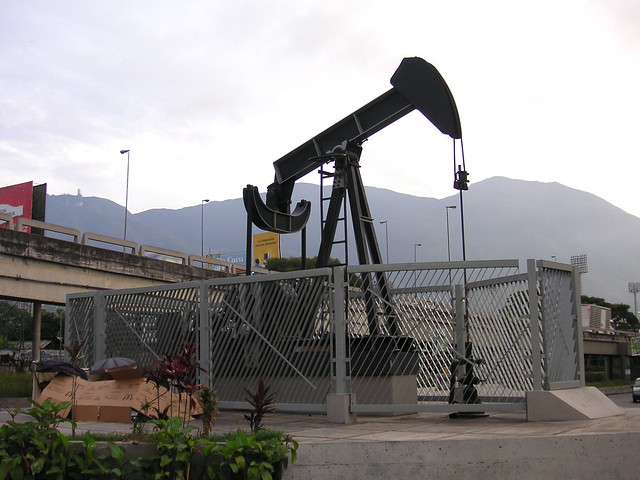 (Source: blmurch // Creative Commons BY 2.0)
(Source: blmurch // Creative Commons BY 2.0)
All too often, natural resource revenues flow into government coffers and disappear for a time, only to transform magically into private jets, presidential palaces, luxury cars and, of course, the obligatory off-shore bank account.
This is the ‘resource curse’ – kleptocracies (governments that view public funds as their own personal ATMs) siphon off enormous natural resource profits in order to maintain their rule, to the detriment of local education, development and basic health needs.
But the natural resource revenues of a country should be used for the profit of its people, not for the personal wealth of the rulers. To ensure this, all payments to governments in connection with natural resource extraction must be disclosed.
And that is the crux of Transparency International’s contribution to the International Accounting Standards Board (IASB) consultations towards a new reporting standard for the extractive industries.
Accounting – it’s not exactly synonymous with sexy. But before you run away, consider this:
The privately-funded IASB, who sets accounting standards for over 110 countries, has the power to significantly reduce the scope for corruption and support the socially-responsible management of natural resource wealth. The IASB is currently considering a reporting requirement that extractive industries report detailed financial information on a country-by-country basis.
The Publish What You Pay coalition, a network of over 600 civil society organisations from around the globe, has proposed significant reporting requirements that would enable the transparent management of natural resource wealth (chapter 6 of the IASB discussion paper). Revenue Watch Institute, the Tax Justice Network, CIDSE, EURODAD and Global Witness, among others, have also put forward excellent positions that support PWYP’s calls for a strong reporting requirement.
Similarly, we from Transparency International concentrate on the following recommendations:
- reporting standards should be applied in every country in which a company operates
- a minimum, detailed set of information is required to cover all phases of extraction
- reporting standards should include no operations-related exemptions
- companies should report on all different gifts and payments to governments (see also the Extractive Industries Transparency Initiative)
If you think all this is irrelevant, consider the following accusations:
Human Rights Watch, a non-governmental organisation, has estimated that in Angola US$ 4.22 billion in state oil revenues ‘disappeared’ between 1997 and 2002, roughly the entire amount spent on government social programmes in the same period. The late Sani Abacha, President of oil-rich Nigeria between 1993 and 1998 and one of the most notorious kleptocrats of modern times, is alleged to have embezzled somewhere in the region of US$2-5 billion of public wealth.
Without detailed financial information on natural resource revenues, civil society activists lack the data with which to challenge their governments, while multinational corporations can afford to turn a blind eye to bribes and ‘facilitation payments’, safe in the knowledge that they are not required to adequately document all payments made.
All this could change if companies report financial information on a country-by-country basis.
The proposed reporting requirement would force companies to disclose, in no uncertain terms, how much money is paid for concessions, how many gifts a government official receives in connection with a contract, and how much money a company takes out of a country. Companies and government officials would find it much harder to benefit from illegal practices. That is the power of accounting!
The IASB discussion paper has, further, piqued the interest of the major accounting firms such as KPMG and Ernst & Young; major industry players such as Exxon mobil, Vattenfall, PetroChina Company Limited and Total; and asset management organisations such as Calvert Asset Management Company.
While industry players are reluctant to commit to further financial disclosure, transparent reporting standards are vital to prevent the abuse of revenues, promote sustainable development in the extractive industries and create responsible leadership in both extractive companies and resource-rich countries.
The IASB is currently considering the proposal put forward by PWYP. They are not expected to decide until 2011, but our hope is that they will listen!















 Connect with us on Facebook
Connect with us on Facebook Follow us on Twitter
Follow us on Twitter